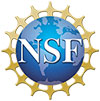
Want to teach STEM?
The University of Lynchburg will prepare you to teach and reach all students.
Schools need more highly qualified teachers in science and math who can reach students of every background. If you’d like to be one of the best teachers in the field, the University of Lynchburg can help you achieve that goal.
The Noyce Scholarship Program for STEM Teachers provides unique opportunities to students who want to teach STEM subjects in today’s diverse classrooms. Qualified students receive outstanding scholarships during their junior and senior years of college that combine with other merit scholarships awarded by Lynchburg.
What You Get
- Additional scholarships of $10,000-$20,000 in your junior and senior years (four semesters total) at University of Lynchburg
- An experienced STEM teacher mentor
- Workshops to help you prepare to teach and reach all students
What You Do
- Major in biology, chemistry, physics, environmental science, or mathematics education
- Participate in workshops and field experiences
- Commit to teach in a high-need school division in Virginia for four years after graduation
How to Apply
You can apply for the Noyce scholarship during your sophomore year of college, or when you are a rising junior.
Before then, you can enroll at University of Lynchburg or Central Virginia Community College and complete requirements that count toward your bachelor’s degree in one of the STEM areas.
To apply, please complete the online application, and include your personal statement plus one letter of recommendation.
About the Noyce Scholarship
 The Noyce Scholarship and professional workshops are made possible by a grant from the National Science Foundation Robert Noyce Scholarship Program. The program educates aspiring teachers who can teach science and mathematics with a special focus on teaching students with special needs and from diverse backgrounds.
The Noyce Scholarship and professional workshops are made possible by a grant from the National Science Foundation Robert Noyce Scholarship Program. The program educates aspiring teachers who can teach science and mathematics with a special focus on teaching students with special needs and from diverse backgrounds.
The Noyce Scholarship is awarded in addition to merit scholarships and other financial aid awarded when the student is admitted to the University of Lynchburg.
Disclaimer: This material is based upon work funded by the National Science Foundation (NSF) under Grant #1852670. Any opinions, findings, interpretations, conclusions or recommendations expressed in this material are those of its authors and do not represent the views of the AAAS Board of Directors, the Council of AAAS, AAAS’ membership or the National Science Foundation.

